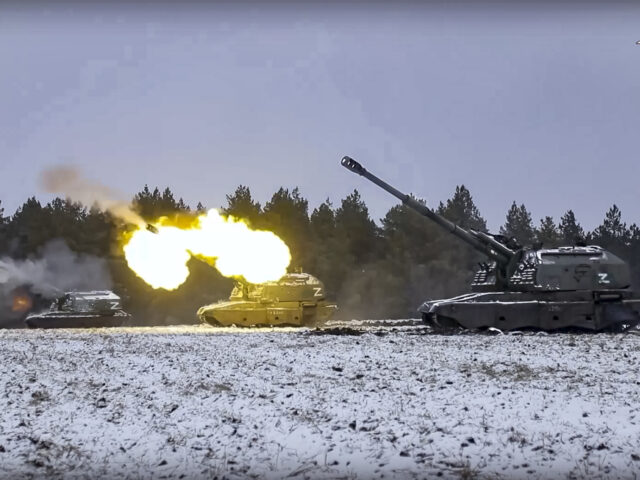The former commander of British forces in Afghanistan’s dangerous Helmand province has warned people in the West to be prepared for “significant” Russian advances in the coming weeks.
With many Western observers buoyed by Ukrainian successes including the abandonment of Russia’s northern front against Kyiv (Kiev), rout from most of the Kharkiv (Kharkov) region, and retreat across the River Dnieper from Kherson city in 2022, some have developed a feeling that the largely static front lines of the Ukraine war indicate that the Russian military is a spent force.
However, Colonel Richard Kemp, formerly attached to the Joint Intelligence Committee and COBRA at the Cabinet Office, has warned against such complacency, noting that hundreds of thousands of mobilised reservists are now “pouring into Ukraine in preparation for what is expected to be a major offensive in the coming days and weeks.”
“Putin has a much greater advantage in troop numbers than he did when he invaded a year ago,” Kemp suggested in an article for The Telegraph newspaper, which is close to Britain’s governing Conservative (Tory) Party.
The retired officer also said people should not put too much stock in reports of Russian forces “running low on artillery shells”, for example, stating that “Putin’s war stocks are vast, and his factories have been working around the clock to churn out even more.”
“Under pressure towards the end of last year, Russia withdrew its forces to positions of strength, trading ground for time as it massed resources for a planned hammer blow while grinding down the Ukrainians in the east, softening them up for the assault to come,” he said, describing recent attacks centred on the Donbas city of Bakhmut, in which the Russians have allegedly been losing huge numbers of troops in frontal assaults, were being carried out in “time-honoured Russian style.”
“With so many more men and resources at its disposal, Moscow will be able to sustain higher casualty rates. This is why Russia tends to do better in wars the longer they go on – it can bring more to bear over time,” he suggested.
Colonel Kemp was clear that, in his view, Russian forces have “performed abysmally”, but said there are indications that they have been learning lessons and “as in the Second World War… may be recovering from [their] earlier disasters” — a reference the early part of the invasion of Soviet territory by Germany and its allies, which saw the Red Army destroyed, routed, or surrounded across swathes of territory, though the conflict would ultimately end with Soviet troops hoisting their flag over Berlin.
The West “must”, the Briton insisted, be “prepared for significant Russian gains in the coming weeks” and “be realistic about how bad things could be – otherwise the shock risks dislodging Western resolve.”
He concluded by saying that Western powers must not only “maintain our combat supplies to Ukraine” but “step [them] up even further and even faster” — though earlier in his article he conceded that “the truth is that recent promises of new combat equipment for Ukraine… are unlikely to be fulfilled in time to have an impact in this battle if Putin launches his offensive on the timetable Kyiv predicts.”
Indeed the United States, for example, has indicated that a promised shipment of M1 Abrams heavy tanks will not arrive for “months, as opposed to weeks” according to Joe Biden administration officials.
The Kremlin, for its part, has insisted that Western weapons shipments “can add pain to the Ukrainian people and prolong its sufferings, but principally they will be unable to solve anything [or] disrupt the process of achieving the goals of the special military operation,” as it still terms its full-scale invasion of the country.

COMMENTS
Please let us know if you're having issues with commenting.